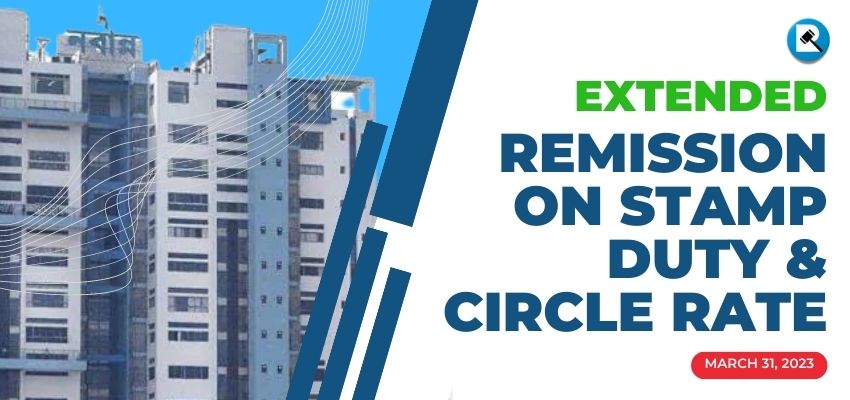Process for Registering Property in Kolkata
Regarding ownership:
The right to transfer land can be called ownership. Ownership can be obtained by –
1) Transfer by a Deed of Conveyance, Deed of Gift, Deed of Exchange, Achiayatnama, Deed of Settlement, Hebayatnama etc
2) Ownership by way of inheritance, ownership by probate of a will.
3) Right granted by the decision of a competent court.
Determine property possession :
Clear and distinct possession will typically be required to prove ownership. Rent or Khajna receipts from the B.L. & L.R.O or Tax receipts from the local municipalities or panchayats can normally be used to establish this possession. In most cases, a landowner is also well-known to nearby landowners or local residents. The owner should have any official documents proving ownership. The original copy of the deed should be retained by the owner if the land was purchased or gifted to him.
Name officially recorded:
If the ownership is by hereditary, his name or his predecessor\’s name can be found in the parcha in respect of the respective C.S. Dag or R.S. Dag or L.R. Dag number. By collecting the chain deeds, one will surely know the C.S. Dag or R.S. Dag or L.R. Dag number and Khatian number.
In many cases, the plot number has changed from CS Dag to RS Dag or RS Dag to LR Dag time to time by way of settlement. However, the reference of Hal plot number and Sabek plot number can be found in Porcha or Khatian. Hal means current or RS or sometimes LR wherein the last settlement has been completed, and previous in the sense of former or CS. You can apply for a certified copy of C.S. Khatian at the District Collectorate Office, and R.S. and L.R. Khatian at the Block Land and Land Revenue Office (BL & LRO).
What does the record say?
By looking at the recording of land starting from C.S. (Started at the British era) to R.S. (1953-1962) and L.R. (at present settlement) one can get a proper understanding of the chain ownership of the land. However, it should be kept in mind that a person\’s ownership of the land cannot be determined with absolute confidence simply by looking at the Land Reforms Department\’s records.
A mere recording never bestows a right on the land. On the other hand, it is not 100% certain that the right of land is totally lost when there is no record in the name of the owner. That is, the Record of Rights cannot be considered as a document of ownership. Although it would not be appropriate to oversimplify – that records are mirrors of the land. But just as an image in mirror is not real, a record is not a document of ownership.
Searching Report before registering property in Kolkata:
Before buying any land or house it is important to do a proper searching of that property. Since a registered deed is prepared when land is transferred and information about that deed is stored in the registry office\’s books and indexes, you can find the history of the transfer of land by searching in the concerned Registry offices.
Make sure that what your seller or transferor provide the information regarding the deed matches this search report. On the other hand, authorities seek twelve year search reports on the matter of mutation of the property. Again, while approving house building loans or housing loans various authorities and institutions ask for search reports of different periods, i.e. fifteen to twenty years.
A search report is required to see whether the person transferring the property in Kolkata to you had the proper saleable or giftable title and rights over that particular property on the date of transfer. The different kinds of searching that can be done to determine whether the property is free from any charges, encumbrances, or liens are described here.
Whether the property has a mortgage:
As per the provisions of the Transfer of Property Act, the seller is bound to inform the buyer of all the information about the property. The seller should also reveal any problems or disputes with the property that a buyer could not have anticipated. In this regard, the provisions of Section 55 of the Transfer of Property Act should also be observed. To find out whether the land is mortgaged, follow the steps below.
1) Try to find out from the registration office whether there is a Deed of property under mortgage.
2) If the seller has clear and clean possession of the land and no mortgage has been granted, it will be known.
3) It can also be known that if the seller possesses the original title deed and no mortgage has been offered in return for the deed.
4) You can advertise the legal procedure in widely circulated newspapers, and contact a skilled and experienced lawyer in this regard.
5) Search in CERSAI to find information regarding mortgage
Whether there are any vesting proceedings and acquisition processes on land :
In general, the West Bengal Estate Acquisition Act vested the right of middle ownership i.e. zamindari and some special classifications of land vested by the Government. All the entries in R.S. records as “intermediate proprietors in perpetuity” were vested by the Government on 15.04.1955, the intermediary rights were extinguished, and the direct relationship of the Government with the raiyats and other proprietors commenced.
The lands that were vested by the Government in the R.S. settlement phase come under the collectorate’s khatian through modified khatian in the L.R. settlement phase. On the other hand, there is land that has not come under the Collectorates Khatain at the RS settlement are non-vested. In this regard, R.S. Parcha and L.R. Porcha are required to see for such a verification process. Besides that, if any rayati used to pay khajna or the land revenue consistently and regularly in every year, reduces the chances of vesting property.
As per the Land and Land Reforms Act, 1955, the government has determined the number of people in a particular raiyat\’s family could hold how much area of land. If it is found that the land of the raiyat is more than this limit, then anyone can ask for information at the Block Land and Land Reforms Office to know whether the excess portion is vested in the government.
In order to know whether a person\’s land is not currently vested but is likely to be vested, one should try to find out the total amount of land held by the same person in his or her name or someone else’s name by keeping in mind about the total amount of his existing land and transferred land as per provision of law.
Also note whether there is any land acquisition case regarding the land and whether there are any restrictions under the Town Country (Planning and Development) Act. Information will be sought from District Land Acquisition Office regarding land acquisition, KMDA, Municipality and District Parishad offices should be questioned.
Land Classification and Conversion:
The land classification should be mentioned in the certified copy of the record of the land (ROR) which you are going to buy and also in the deed of land. But if the seller has changed the classification of land without following legal procedure as per Section 4C of the WBLR Act i.e. without the written approval of the Collector, in that case consult with a competent and experienced lawyer before buying the land or flat constructed on the same, it is important to note that changing of classification of land without the permission of the land reform authority is a punishable offense.
Land Khajna and Taxes:
If the seller has paid all the government dues in respect of a land or flat in time, then it is understood that he has an interest in the property and the government authorities have recognized his rights by accepting the government dues from him. So find out whether municipal or Panchayat tax is paid or in whose name.
Land Measurement and Government Dag No.:
While drafting the Sale Deed or any type of Deed according to the Registration Act, it is very important to mention the land measurement and Dag Numbers as per the Government Mouja Map, so you should be aware of the specific Dag Numbers and measurement of land by comparing the seller\’s deed, old Khajna receipt, RSROR, LRROR and current or updated receipt. Along with this, find out whether the physical land you are purchasing is in the official map of the concern mouja with the help of an experienced Amin or Surveyor, it will be appropriate to discuss with the neighboring land owners, or to get a certified copy of CS Mouja Map/RS Mouza Map/LR Mauja Map of any dag.
Court case :
If there is a case pending in any court regarding any property then a lawyer should be consulted before buying that land to the concerned civil court to find out whether the land is free of litigation or you can search by name eCourt.
For cooperative society:
If a registered cooperative society has advertised for the sale of land or flat, then before the transaction, it is necessary to know whether the society has received official approval from its higher authority or controller i.e. the controlling office, or maintained the provision as laid down in the cooperative act. if the land or flat is sold on the basis of Mokhtarnama (Power of Attorney), need to consult with an experienced lawyer.



